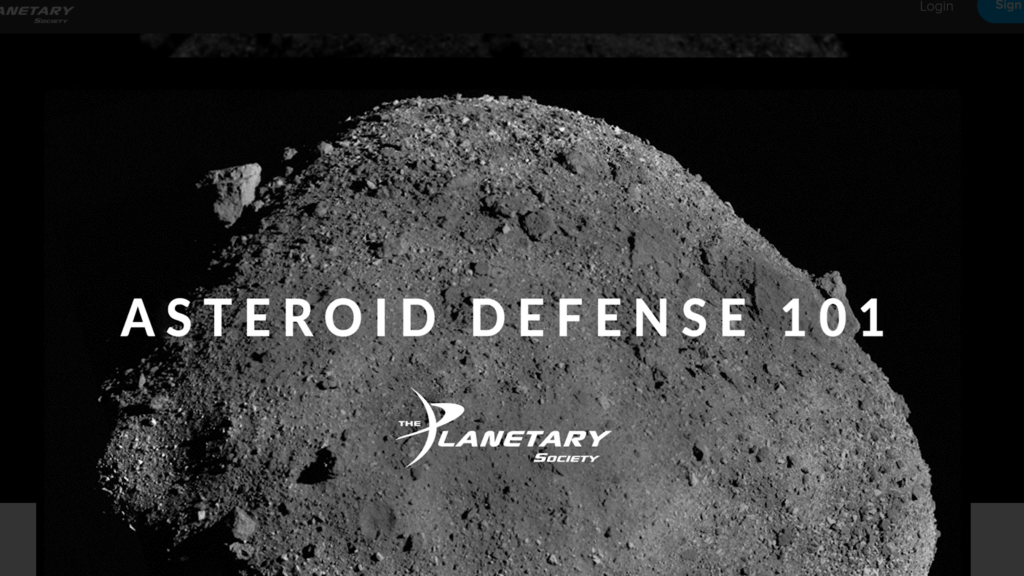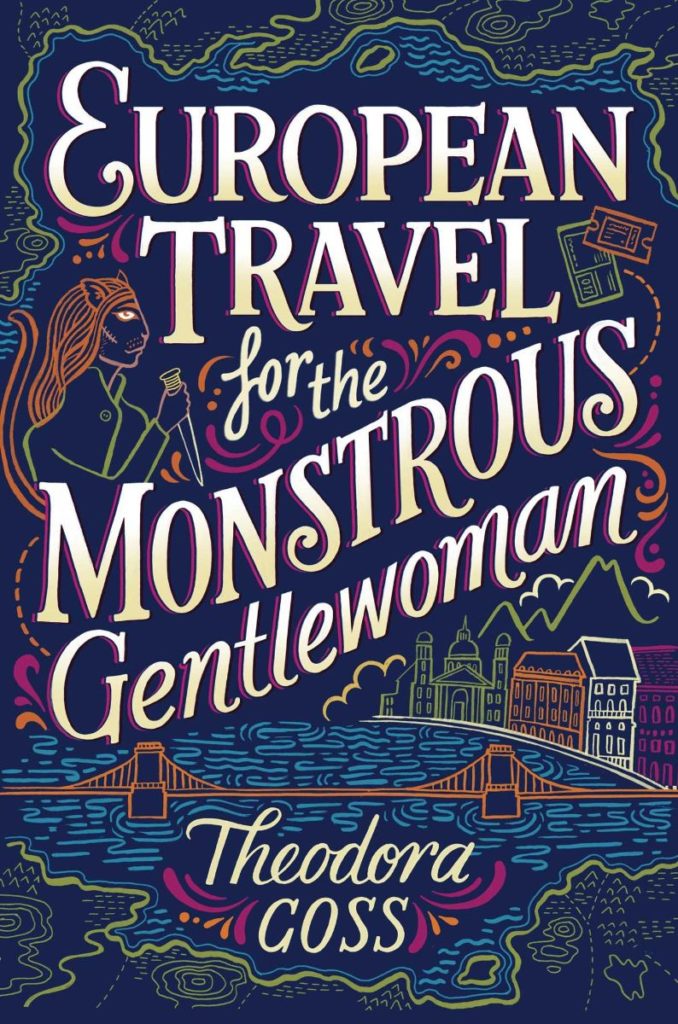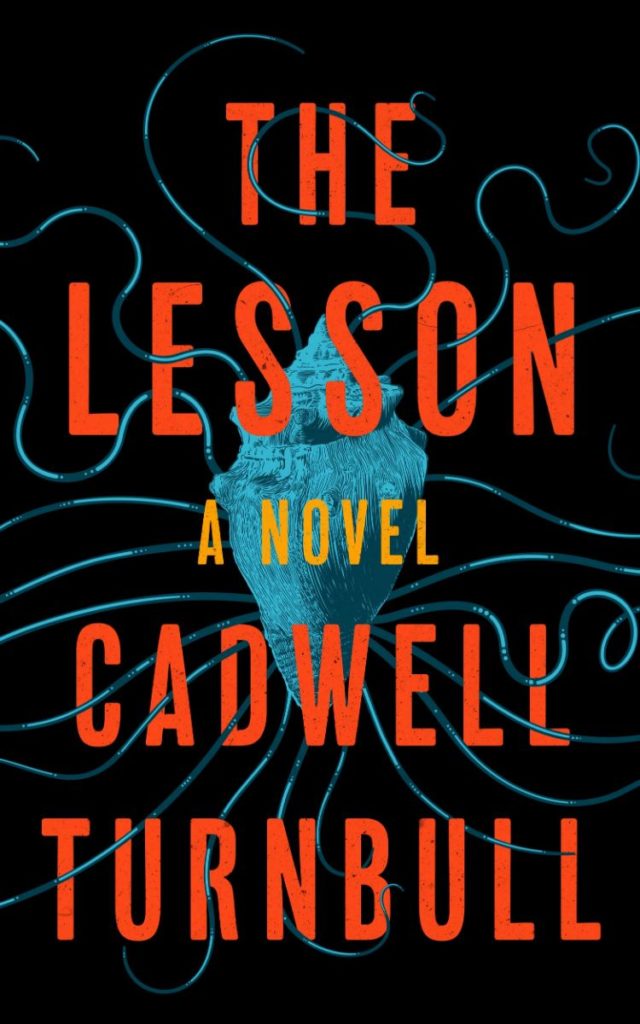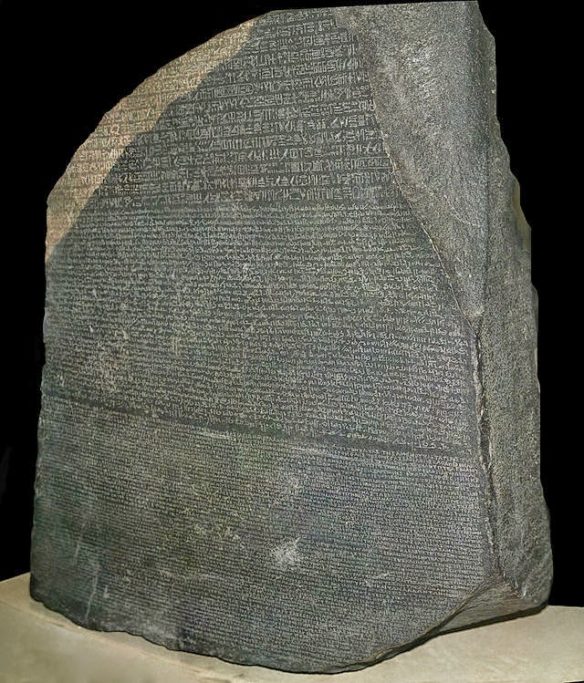(1) AVOIDING THE HIT PARADE. The Planetary Society welcomes you to enroll in “Asteroid Defense 101” “A short course introduction to asteroid impact and what we can do to prevent it.” It’s free.

In this course, you’ll learn about the threat of asteroid impact, the history of asteroid impacts on Earth, asteroids and comets in general, and The Planetary Society’s 5 step plan to prevent asteroid impact. At the end of the course you’ll be presented with resources to learn more, and encouraged to share what you’ve learned with others. The entire course can be completed in about an hour or a little bit more. See below to learn about the instructor and see the curriculum. Let’s save the world!
(2) HE’S IN THE BOOK. Henry Lien celebrated his discovery that he’s the subject of a Wikipedia article. “Achievement Unlocked,” he called it. The entry begins —
Lien is originally from Taiwan and lives in Hollywood, California. He has been an attorney, a teacher at UCLC Extension, and an art dealer in Los Angeles, representing artists from the Americas and Eurasia. He has also served as president of the West Hollywood Fine Art Dealers’ Association and on the board of the West Hollywood Avenues of Art and Design.
(3) ONE TO BEAM DOWN. The latest gatekeeping controversy inspired Kiya Nicoll to explain “I Was Born To Be A Fake Fan”.
…My first serious fannish activity was writing Star Trek: The Next Generation fanfic, largely focusing on my two favorite/self-insert characters: Data and Wesley Crusher.
My first social fanac was half-assedly joining a play-by-mail Starfleet simulation RPG.
My first “no shit there I was” fan story was giving a homemade snickerdoodle cookie to Brent Spiner.
You don’t get my fandom experience without Tolkien, for sure; but you damn sure don’t get it without Star Trek, either. Star Trek is where I start doing fandom, as a social thing broader than the scope of my family, rather than merely reading my father’s shelves ravenously. (Though of course my immediate social circle of fic writers included at least one person who sneered at anything involving Wesley Crusher positively, and I came away with the impression that she did it to fit in and I would be expected to do the same. So I stopped sharing my fic.)
I used to comment about the watershed of the post-Star Wars fandom experience; I am pretty sure that the post-Harry Potter fandom experience has only increased this phenomenon. Older fen I saw talk about being teased or bullied for liking science fiction and fantasy; I got a bit of that for reading, generally, but it was a given that I would read genre. Everyone did genre, at least people who actually read.
I was… sometime in my teens before I learned that there was stuff out there that wasn’t genre. It was the Doonesbury sequence on The Bridges of Madison County that did it. This wasn’t something that was explained to me – or remotely apparent to me – before then. Everything I read, I read as Strange People In Unfamiliar Situations, and the same principles applied that to Dickens and Robert Louis Stevenson and whatever nonsense was assigned in English class, where it worked just as well as it did on Niven and my beloved Cherryh.
One of my first encounters with old-school convention/zine fandom was being indirectly mocked for saying “sci-fi”, the way my father did, the way everyone I knew did. It was made clear to me that this was the mark of an Outsider, possibly an Interloper, certainly not someone who was qualified to be welcomed into the inner circles….
(4) BACK TO THE FUTURE. Gene Kranz, famed as the voice of Mission Control, helped celebrate the restoration of the historic facility: “NASA Reopens Apollo Mission Control Room That Once Landed Men on Moon” in the New York Times.
…On Friday, Mr. Kranz and Jim Bridenstine, the NASA administrator, cut a ribbon marking the official reopening of the restored Apollo Mission Control Center. It was a three-year, $5 million project, and every inch of the famed heart of America’s lunar aspirations was repaired and refurbished. Its reopening comes three weeks before the 50th anniversary of Neil Armstrong’s giant leap for mankind, and helps to kick off Apollo festivities across the country.
Apollo mission control had been abandoned in 1992, with all operations moved to a modernized mission control center elsewhere in the building. Center employees, friends, family — and anyone, really, who had access to Building 30 — could walk in, take a seat, take a lunch break and take pictures.
While they were there, they might take a button from one of the computer consoles. Or a switch or dial, anything small — a personal memento from an ancient American achievement. The furniture fabric and carpet underfoot grew threadbare. The room was dark; none of the equipment had power. Wires hung where rotary phones had once sat. The giant overhead screens in front of the room were damaged, and the room smelled of mildew. Yellow duct tape held carpet together in places….
(5) IT GETS WORSE. The Guardian tells us “German sci-fi fans lap up dystopian tales of Brexit Britain”.
“One basic rule of dystopian fiction is that the future should be worse than the present,” said the German novelist [Tom Hillenbrand]. “But in this case it turns out I was a bit too optimistic.
“In my book Britain has actually worked out how it wants to leave and the EU is preparing a new constitution as a result. The real Brexit is actually much more dystopian.”
Since Drone State was published in Germany to critical acclaim in 2014, two years before the EU referendum on EU membership, a new micro-genre has flourished in the country’s publishing industry: dystopian fiction about Brexit Britain.
(6) KGB. Fantastic Fiction at KGB reading series hosts Ellen Datlow and Matthew Kressel present Theodora Goss and Cadwell Turnbull on Wednesday, July 17, 7 p.m. at the KGB Bar.
Theodora Goss

Theodora Goss is the World Fantasy and Locus Award-winning author of novels, short stories, essays, and poetry, including debut novel The Strange Case of the Alchemist’s Daughter and sequel European Travel for the Monstrous Gentlewoman. She has been a finalist for the Nebula, Crawford, Seiun, and Mythopoeic Awards, as well as on the Tiptree Award Honor List, and her work has been translated into twelve languages. She teaches literature and writing at Boston University and in the Stonecoast MFA Program.
Cadwell Turnbull

Cadwell Turnbull is the author of the The Lesson. His short fiction has appeared in The Verge, Lightspeed, Nightmare, Asimov’s Science Fiction, The Best American Science Fiction and Fantasy 2018, and The Year’s Best Science Fiction and Fantasy 2019 (forthcoming). He lives with his wife in Somerville, Massachusetts.
KGB Bar: 85 East 4th Street (just off 2nd Ave, upstairs.) New York, NY
(7) TODAY IN HISTORY.
- June 30, 1971 — Willy Wonka & The Chocolate Factory was released on this day
(8) TODAY’S BIRTHDAYS.
[Compiled by Cat Eldridge.]
- Born June 30, 1902 — Lovat Dickson. Australian-born publisher and author who was half-brother of Gordon R Dickson. He wrote the biography H G Wells: His Turbulent Life and Times. (Died 1987.)
- Born June 30, 1905 — Nestor Paiva. Sometimes it only takes one film or series for a performer to get a Birthday write-up from me. Paiva makes it for Lucas the boat captain in The Creature from the Black Lagoon and its oft-forgotten sequel Revenge of the Creature. Though that was hardly his only genre role as his first role was in the early Forties as an uncredited prison guard in Tarzan’s Desert Mystery and he’d be in many a genre film and series over the decades as Prof. Etienne Lafarge in The Mole People, as the saloon owner in (I kid you not!) Jesse James Meets Frankenstein’s Daughter, Felicity’s Father in The Spirit Is Willing, Captain Grimby in “The Great Treasure Hunt” of The Adams Family and a Doorman in the “Our Man in Leotards” episode of Get Smart. (Died 1966.)
- Born June 30, 1920 — Sam Moskowitz. SF writer, critic, and historian. Chair of the very first World Science Fiction Convention held in NYC in 1939. He barred several Futurians from the con because they threatened to disrupt it in which was later called the Great Exclusion Act. In the Fifties, He edited Science-Fiction Plus, a short-lived genre magazine owned by Hugo Gernsback, and would edit several dozen anthologies, and a few single-author collections, most published in the Sixties and early Seventies. His most enduring legacy was as a historian of the genre with such works as Under the Moons of Mars: A History and Anthology of “The Scientific Romance” in the Munsey Magazines, 1912–1920 and Hugo Gernsback: Father of Science Fiction. (Died 1997.)
- Born June 30, 1959 — Vincent D’Onofrio, 60. Not Kingpin in that not terribly good or bad Daredevil film, but rather in the Daredevil series, Edgar the Bug in the only truly great Men in Black film and Vic Hoskins in Jurassic World. He also was Jason Whitney / Jerry Ashton in The Thirteenth Floor, loosely based upon Simulacron-3, a early Sixties novel by Daniel F. Galouye.
- Born June 30, 1961 — Diane Purkiss, 58. I’ve not read her Corydon Trilogy she wrote with Michael Dowling, her son, but I can say that At the Bottom of the Garden: A Dark History of Fairies, Hobgoblins, Nymphs, and Other Troublesome Things is as splendid as the title suggests it is. She’s also written Fairies and Fairy Stories: A History.
- Born June 30, 1966 — Peter Outerbridge, 53. Dr. David Sandström in what I think is the underrated ReGenesis series as well as being Henrik “Hank” Johanssen in Orphan Black anda recurring role on Millennium as Special Agent Barry Baldwin. He’s currently in two series, The Umbrella Academy with a recurring role as The Conductor, and as Calix Niklosin in V-Wars, yet another Netflix SF series.
- Born June 30, 1972 — Molly Parker, 46. Maureen Robinson on the current Lost in Space series. One-offs in Nightmare Cafe, The Outer Limits, The Sentinel, Highlander: The Series, Poltergeist: The Legacy, Human Target and she appeared in The Wicker Man asSister Rose / Sister Thorn.
(9) COMICS SECTION.
- Pearls Before Swine magnificently fails to explain the primacy of books over social media.
(10) WILL YOU SEE IT AGAIN? Emergency Awesome gives a rundown of the extras tacked onto the end of the Avengers: Endgame re-release, done in hopes of topping Avatar’s box office record.
Covering new Avengers Endgame Post Credit Scene with Hulk from Endgame Re Release. Special Stan Lee Cameo Scene and Avengers Endgame Spider-Man Far From Home Post Credit Scene. New Footage, Deleted Scenes and Bonus Features. Most of which will be on the Avengers Endgame Blu Ray later this year.
(11) COURT IS IN SESSION. At Legal Eagle, “Real Lawyer Reacts to Daredevil (The Trial of Frank Castle).”
Is Frank Castle a hero or a villain? Is Matt Murdock a good lawyer or a bad one?
A legal analysis of Frank Castle’s trial from season 2 episode 7 and 8 of Marvel’s Daredevil. As Vulture eloquently put it: “In the Marvel Cinematic Universe, the “trial of the century” does not concern O.J. Simpson, but Frank Castle. It’s finally time for the Punisher to stand trial, and thanks to just about every imaginable thing going wrong, Nelson and Murdock must defend him against District Attorney Reyes, who has a stacked deck and enough clout to steamroll our favorite tiny firm with ease.”
(12) HUGO’S GREATEST MOMENTS. This is probably well-intended, but my goodness!
Translation: HUGO AWARD 2018: SCIENCE FICTION and FANTASY AWARD – SUMMARY WITH THE BEST MOMENTS http://www.
(13) SHOOTING SPARKS. The Monica Bellucci sf movie Nekrotronic has dropped its official trailer.
(14) NERO. Congratulations to fanartist Taral Wayne (creator of the File 770 masthead), who also is a coin collector and just acquired a fabulous Roman aureus.
To my surprise, the number quoted was not remotely as high as that. Just HOW high, I asked? He did a few calculations about his costs, and compared examples on line, and gave me a number that led me to swallow and say, “I can do that!” Mind you, I will be scraping together everything I can spare for the next three months, along with everything else I had already spend at the show, but I CAN do it. It will be the most expensive coin I have ever bought in the past, or am ever likely to buy in the future, and it was more expensive than anything else of any kind that I have ever bought, but IT IS MINE! I now own a gold aureus by the emperor Nero, roughly 54 to 68 AD. I think I have experienced an epiphany of sorts.
(15) BEST NEW WRITER. Bonnie McDaniel has posted her assessment of the Campbell Finalists. From the middle of her ballot —
3) S.A. Chakraborty (my review of her novel here).
This is an Arabic-inspired fantasy, set in the secret magical land of the daeva, or djinn. This world is well built, with a great weight of history and backstory conveyed without infodumping. There’s also some meaty themes of discrimination and oppression.
(16) RETRO HUGO NOMINEE DECODED. [Item by Cora Buhlert.] For all of us Retro Hugo voters who are confused by the rather incoherent horror film The Seventh Victim, here is an older article from Vice which explains why the movie is so strange: “The 1940s Horror Movie That Embraced Lesbianism and Satanism” (2017).
The signs are plentiful. Jacqueline has recently married a lawyer Gregory Ward (Hugh Beaumont), yet shows no signs of wanting to take his name or be with him romantically. Ward reveals to Mary, “There’s something about your sister a man can never quite get hold of.” Jacqueline is also “miserable” with her life, necessitating regular visits to psychiatrist Dr Louis Judd. (The doctor is played sarcastically by Tom Conway, who reprises the same character from Lewton’s similarly odd 1942 masterpiece Cat People—a film that also tackles repressed sexuality.) It turns out that Jacqueline has fallen in with the secretive cult and is now wanted dead by its members, who fear that she has told her psychiatrist about them.
In short, the missing women everybody is looking for is a lesbian and because society doesn’t accept her, she becomes depressed and commits suicide. But Jacques Tourneur and Val Lewton weren’t allowed to do more than vaguely hint at the character’s sexual orientation, so they shoehorned in a plot about Satanists, since Satanists are apparently less scary than lesbians.The article certainly caused me to reevaluate the movie, since a) it’s now even less SFF than before, and b) equating lesbians with Satanists is pretty offensive.
(17) ALTERNATE MUSICAL HISTORY. Whether it’s sff or not isn’t something Leonard Maltin is concerned about – it’s the disappointing execution: “Yesterday: What A Letdown”.
A good idea is a rare and precious gift. Screenwriter Richard Curtis has had many of them, leading to such films as Four Weddings and a Funeral, Love Actually and Notting Hill. He and Jack Barth had another good one: What if a time warp erased the whole world’s memory of The Beatles, and a struggling singer presented their songs as his own? They brought this concept to director Danny Boyle, whose enthusiasm led to Yesterday.
An idea, however, is not the same thing as a story. This film is an unfortunate example of a premise that doesn’t blossom into a full-fledged screenplay. The cast is engaging enough, with Himesh Patel as a hard-luck guy who has greatness thrust upon him and Lily James as his platonic pal. They’ve been like brother and sister since childhood, always there for each other, but neither one can admit that they are truly in love. This relationship, fraught with hesitations and crises, becomes repetitious and tiresome.
(18) PAPER ART. Colossal’s gallery shows how “Quilled Paper Sculptures by Sena Runa Embellish the Natural Forms of Everyday Objects and Animals”. Some sff images among them —
Sena Runa (previously) twists, folds, and stacks layers of thick paper to create dynamic paper sculptures. The Turkish artist uses a wide range of hues to create chromatic elephants with a rainbow of shades, or work all of the brilliant blues of the ocean into a single sea turtle.
(19) KURTZMAN DEFROCKED. Midnight’s Edge explains why Alex Kurtzman can’t be fired but has been sidelined as the maven of all things Star Trek at CBS.
On June 27, CBS officially confirmed what Midnight’s Edge revealed almost two weeks earlier: that Michael Chabon is the new showrunner of Star Trek Picard. In this video, we will begin by going through what this implies about Alex Kurtzman and his current role, before moving on to what Chabon might bring to Picard.
(20) RE-VERSE. A visit to Bonnie McDaniel’s blog led me to rediscover this wonderful verse Stoic Cynic posted in comments in 2016 (it was a very good year!)
A fragmented excerpt from The Filer and the Astronaut by Louise Carol:
‘The time has come,’ the Filer said,
‘To talk of many things:
Of pups — and picks — and palimpsests —
Of Cadigan — and King —
And why this movie, cult is not —
And whether trolls believe.’‘But scroll a bit,’ the Pixels cried,
‘Before you have your chat;
For some of us are full of links,
Oh do not rush so fast!’
‘No hurry!’ said the Astronaut.
They thanked him much for that.‘A post of fifth,’ the Filer said
‘Is what we chiefly need:
Filking and Punnery besides
Are very good indeed —
Now, if you’re ready, Pixels dear,
We can begin to read.’‘O Pixels,’ said the Astronaut,
‘You’ve had a pleasant run!
Shall we be posting here again?’
But answer came there none —
And this was scarcely odd, because
They’d scrolled up every one.
[Thanks to mlex, Carl Slaughter, Mike Kennedy, Martin Morse Wooster, John King Tarpinian, JJ, Bruce D. Arthurs, P J Evans, Cat Eldridge, Andrew Porter, Alan Baumler, and Chip Hitchcock for some of these stories, Title credit goes to File 770 contributing editor of the day GSLamb.]










